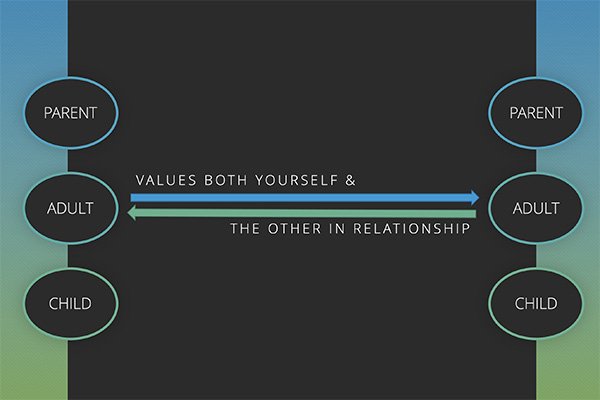
Blog

Understanding Infidelity: Is it the Same as Sex Addiction?
Although infidelity and sex addiction are not directly interchangeable, they can often intertwine. Infidelity can be a symptom or consequence of sex addiction

Breaking Chains: Understanding Addictive Family Systems
Addiction can cast a dark shadow over a family, impacting not just the individual struggling with substance abuse, but also their loved ones. In many cases, addiction becomes deeply embedded within the family dynamics, creating a cycle of pain and dysfunction.

Understanding Relationships: Parent-Child vs. Adult-Adult Dynamics in Transactional Analysis
From family dynamics to workplace interactions, TA offers valuable insights into how we communicate and relate to others. At the heart of TA lies the concept of Parent-Child and Adult-Adult dynamics. By understanding these dynamics, we can navigate relationships with greater empathy and clarity.

Breaking Free: Escaping the Common Thought Traps that Keep You Stuck in Anxiety
At times, we find ourselves caught in the loop of ingrained patterns of thinking, unable to break free from their grip. This is known as habituation, and it can be a real challenge to overcome. To experience personal growth and emotional well-being, it becomes essential to find alternative ways to replace these patterns.

Gaslighting: Recognizing and Healing from Emotional Manipulation
A classic example of gaslighting in infidelity. The denial and distortion of reality, paired with shifting responsibility onto the victim, can cause deep emotional trauma, making it challenging to heal from the deception and betrayal.

Abstinence Contracts in Sex Addiction Recovery: Building Trust and Strengthening Relationships
Discover how abstinence contracts can benefit both the addict and their relationship. By demonstrating commitment, providing clear guidelines, and helping to reset neuropathways, abstinence contracts become vital tools for fostering trust, healing, and growth.

Recognizing Porn and Sex Addiction: Signs and How a Certified Sex Addiction Therapist CSAT Can Help You Find Recovery
The dynamics of porn addiction can be challenging to navigate alone. Being aware of the presence of an addiction is a critical first step, as acknowledgment can provide a foundation to start the healing process.
Addiction isolates.
Addiction shames.
Addiction destroys.
Our team of CSATs understand and most have been through it ourselves. This gives us both passion and compassion to help if this is a struggle for you.

The Power of Group Work in Sex Addiction Recovery: 6 Key Benefits
Group work is essential for sex addiction recovery, particularly when it is accompanied by intimacy disorders. Our center understands the importance of creating a supportive environment where individuals with sex addiction can find validation, community, and learn healthy relationship skills. Finding companionship and understanding in group settings can be a lifeline on the journey to healing and recovery. You are not alone - we are here to help you thrive.

So How Does Full Therapeutic Disclosure Work?
In Full Therapeutic Disclosure, the information is carefully prepared with the guidance of a specially-trained CSAT therapist. Ideally, the one revealing their secrets will have achieved 90 days of sobriety and will have worked closely with their therapist for 3-4 months to create a thorough document outlining what happened, with whom, where, and how the betrayal occurred, as well as where the money was spent.

Full Therapeutic Disclosure: An Important Step in Healing
We understand the importance of full therapeutic disclosure in the recovery process. In the journey toward healing and recovery, full therapeutic disclosure plays a vital role in fostering understanding and facilitating growth within intimate relationships.

Unveiling Shame: Navigating the Path to Healing Infidelity
Many individuals who struggle with pornography, sex addiction, and infidelity may find themselves weighed down by feelings of shame. Shame is a powerful emotion that can cause deep pain and isolation, but it is important to understand the difference between healthy shame and toxic shame in the recovery process.

Understanding Enmeshment: A Path to Healing
In the journey of healing from emotional trauma, it is essential to shed light on the concept of parental enmeshment. This intricate and often challenging dynamic can manifest within the parent-child relationship, impacting an individual's emotional well-being well into adulthood.

Breaking the Silence: Finding Hope and Support in the Face of Suicide
Suicide is a complex and deeply distressing topic that affects millions of people worldwide. Whether you are grappling with suicidal thoughts yourself or you have been impacted by the loss of a loved one to suicide, it is important to remember that you are not alone.

Healing from the Past: Nurturing the Hearts of Adult Children of Sex Addicts
The topic of sex addiction and the impact it had and continues to have on now adult children of sex addicts often remains hidden in the shadows. We know that the impact of growing up in such an environment can be profound, but we also want you to know that you are not alone.

Why Nonverbal Communication Matters
Nonverbal communication encompasses all the ways in which we communicate that aren’t spoken or written. And they are just as important.

When Actions Speak Louder Than Words: The Power of "I Am Sorry"
"I am sorry" itself may not be enough to repair the damage caused. It is in the actions that follow those three words where the true healing begins.

Finding Freedom from Intrusive Thoughts: A Path to Inner Peace
Intrusive thoughts can be unbearable. They seem to sneak into our minds without warning and immediately create feelings of anxiety, guilt, and shame. We may wonder, "Why am I having these thoughts? What do they mean?" It's important to remember that intrusive thoughts are a common experience, and you are not alone in this struggle.
let’s talk with Teresa | Suicide
“Studies show that asking people about suicidal thoughts and behaviors does not cause or increase such thought. Asking someone directly, ‘Are you thinking of killing yourself?’ can be the bet way to identify someone at risk for suicide.”

Trauma And How Your Body Can Remember It
Trauma is defined as a response to a distressing or disturbing event or situation. Trauma can overwhelm someone’s ability to cope.
To make matters worse, the traumatic experience can be stored in your body just like any other type of memory. Each individual has a mind-body connection.

Love Addiction? What Is That?
Love addiction is defined as a condition that causes a person to develop an unhealthy obsession or fixation with a love interest or love in general.
